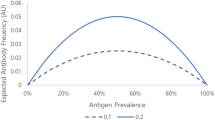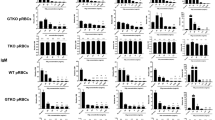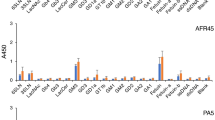Abstract
McDonald and Zuckerman have reported1 an excess of blood group O and a corresponding deficiency of group A among patients with influenza A2 infection. Blood group A-like antigens have been found in commercial influenza vaccines2, and injection of non-dialysable material from such vaccines has given 4- to 15-fold increases in anti-A titres3.
This is a preview of subscription content, access via your institution
Access options
Subscribe to this journal
Receive 51 print issues and online access
$199.00 per year
only $3.90 per issue
Buy this article
- Purchase on Springer Link
- Instant access to full article PDF
Prices may be subject to local taxes which are calculated during checkout
Similar content being viewed by others
References
McDonald, J. C., and Zuckerman, A. J., Brit. Med. J., ii, 89 (1962).
Springer, G. F., and Tritel, H., Science, 138, 687 (1962).
Springer, G. F., Transfusion, 3, 233 (1963).
Author information
Authors and Affiliations
Rights and permissions
About this article
Cite this article
FAGERHOL, M., HARBOE, A. & HARTMANN, O. Lack of Anti-A Hæmagglutinin Response to Influenza Infection. Nature 203, 1185–1186 (1964). https://doi.org/10.1038/2031185a0
Issue Date:
DOI: https://doi.org/10.1038/2031185a0
Comments
By submitting a comment you agree to abide by our Terms and Community Guidelines. If you find something abusive or that does not comply with our terms or guidelines please flag it as inappropriate.



